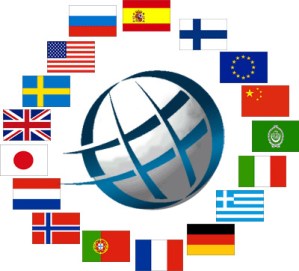
Earlier this year, the International Corporation for Assigned Names and Numbers (ICANN) approved a plan to enable top-level domains using non-Latin writing systems, for the first time making it possible for speakers of those languages to specify Internet addresses entirely within their own script. Now, four countries and two territories have won preliminary approval for their non-Latin top-level domains, which means the ability to use completely non-Latin Internet addresses could be up and running by mid-year.
So far, Hong Kong, Palestine, Qatar, Sri Lanka, Thailand, and Tunisia have completed the fast-track evaluation process. Support for additional top-level domains in Arabic and Cyrillic are expected soon. Although Hong Kong has already been approved in Han (Simplified Traditional), top-level domains in Simplified Chinese and Traditional Chinese are still being worked out: rules need to be put into place so addresses written in either script resolve to the same Web site. Hong Kong lucked out because it’s written the same way in both script systems.
Prior to ICANN’s plans to enable non-Latin script systems in top-level domains, the last part of Internet domain names—the .com, .net, and .org part—have been limited to the letters A through Z and the numerals zero through nine. The ability to use non-Latin suffixes means Internet users with little to no knowledge of English will be able to enter and read Internet domain addresses in their native script.


